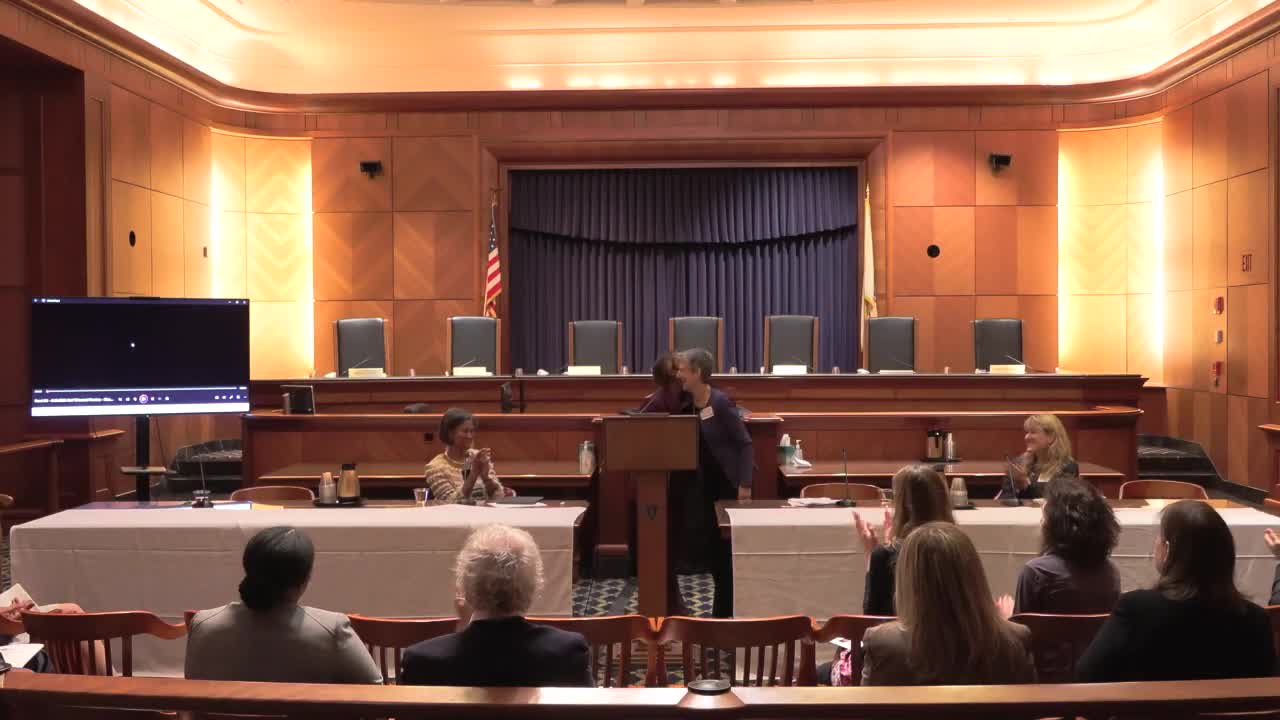Attorney General Andrea Joy Campbell urges responsible tech, youth engagement and legal accountability
Get AI-powered insights, summaries, and transcripts
Subscribe
Summary
Attorney General Andrea Joy Campbell told the Access to Justice Commission symposium that technology can expand access to courts but must be paired with oversight, transparency and youth-focused safeguards; she cited AGO guidance on AI, ongoing lawsuits against social platforms, and a new youth council and Study Act to inform policy.
Attorney General Andrea Joy Campbell told attendees at the Massachusetts Access to Justice Commission’s 20th‑anniversary symposium that technology offers powerful tools to expand access to the courts — but only if it is deployed with clear oversight and input from the public. "Technology when used with intention and placed in the right hands can be a powerful force for public safety and for justice," Campbell said in the Supreme Judicial Court courtroom.
Campbell framed the issue as both practical and generational: rapid advances in digital platforms and artificial intelligence can make filing, finding legal information and attending hearings easier for many, she said, but those tools also carry risks for privacy and fairness. The attorney general highlighted her office’s work issuing guidance on how state consumer‑protection laws apply to AI and said the AGO was among the first statewide offices in the country to do so.
Why it matters: courts and legal‑aid organizations are increasingly designing digital services — guided interviews, e‑filing and public portals — to reach people who lack lawyers. Campbell said those innovations must be matched by safeguards so that private data, automated decisions and new forms of digital evidence do not produce new barriers or disparate impacts.
Campbell described several concrete initiatives. She said the AGO has filed lawsuits against Meta and TikTok related to harms to young people and continues to press major platforms on deepfakes; she also said she led a bipartisan coalition of 47 attorneys general calling on search engines and payment platforms to act against deepfakes. "This new reality — one where anyone can create realistic story lines or images with the click of a button — is a grave harm to human decency and dignity," she said.
Campbell also spelled out parallel legislative and civic efforts. She described a bill her office filed, described in the program as the "Study Act," intended to explore limiting cell‑phone use in schools as part of a broader strategy to protect young people’s mental health and civic engagement. She said the AGO recently launched a Youth Council of 26 people ages 15–18 to ensure young voices inform policy on technology and the courts.
Campbell urged collaboration between the AGO, the judiciary, legal aid providers and community organizations. She emphasized that while litigation is one tool, the public should have opportunities to inform regulatory approaches and guidance around emerging technologies. "We want to match, of course, what our courts are doing with all of you in terms of our innovation and leadership," she said.
The next steps: Campbell called for continued partnership with the Access to Justice Commission and other stakeholders to test tech solutions, center equity, and ensure transparency and redress when products or platforms cause harm. The keynote concluded with a reminder that legal innovation must be people‑centered: technical advances should be measured by whether they expand fair access to justice.
Attribution: Quotes and attributions in this article come from Attorney General Andrea Joy Campbell’s keynote remarks at the Access to Justice Commission symposium.
